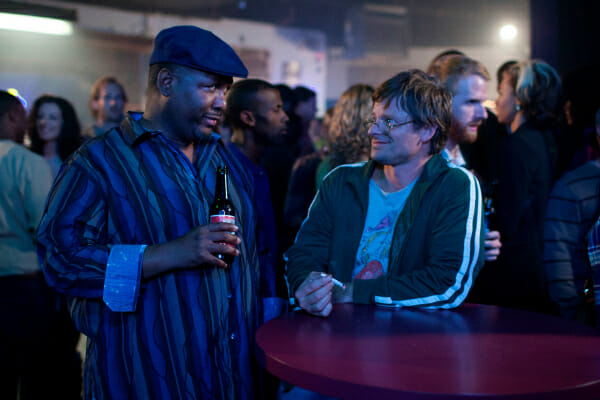Treme: “Yes, We Can” (Episode 4.01)

Most complaints about Treme center around the show’s lack of narrative drive, the way it seems to have a ton of people hanging around and not really doing anything. Conversely, that was why I loved the show so much when it began. When the show tried to tell big stories, to in a way address that “problem,” I found it to increasingly drag in the last two seasons. By focusing so intently on the ordinary events of life, the parades and shows and meals and everything else that we fill our time with, there was a sort of glorification of people themselves. Characters didn’t need to be doing anything particularly vital, like solving crimes or stirring up trouble, to be important. They just needed to be themselves, and with this there was also a sense that the cast could’ve been made up of practically anyone from New Orleans, even though there was a pretty conscious and obvious effort on the part of David Simon and his collaborators to put the spotlight on New Orleans’ artists.
The historical bent of the show was actually a perfect match for this ordinariness, simply because political and social events are always happening in the background and making up the backdrop of our lives. Whether or not they’re important, they’re occurring, and no one lives in a complete void from these things, even when they desperately wish to. But it seemed almost as if Simon listened to complaints about the early seasons and tried to remedy this with an abundance of plot in the second two, with crime mysteries and court drama filling up the time rather than people hanging out drinking or doing their day-to-day work tearing down buildings. The Wire was one of the best plotted shows in the history of television, but the moment Treme tried to replicate any of this formula, the show always seemed to stumble. Heightened drama was simply too much of a contrast to everything else, and while Treme was never bad, it did seem confused and, all of a sudden, meandering in a bad way.
-

- Curated Home Page Articles By Test Admin October 21, 2025 | 3:10pm
-

- Curated Home Page Articles By Test Admin October 21, 2025 | 2:57pm
- Urls By Test Admin October 21, 2025 | 2:57pm
- Curated Home Page Articles By Test Admin October 21, 2025 | 2:55pm
-

-

-

-

-

-

-

-

-

-

-

-

-

-

-

-

-

-

-

-

-

-

-

-

-

-

-

-

-

-

-

-

-

-




































